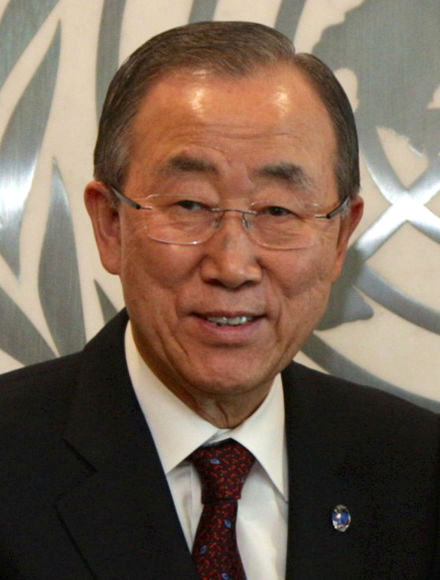By Jaya Ramachandran | IDN-InDepth NewsAnalysis
NEW YORK (IDN) – When United Nations Secretary-General Ban Ki-moon launched the Global Education First Initiative in September 2012, “fostering global citizenship” was one of his three priorities, along with “putting every child in school” and “improving the quality of learning”.
Ban said: “Education is much more than an entry to the job market. It has the power to shape a sustainable future and better world. Education policies should promote peace, mutual respect and environmental care.”
As the international community moves toward adopting the post-2015 development agenda, popularly known as the Sustainable Development Goals (SDGs), the need for education for global citizenship is becoming increasingly important.
Because none of the goals impacting the Earth and its inhabitants can be achieved without people and governments around the world transcending narrow national interests and acting in the interest of the planet.
The United Nations Conference on Sustainable Development in June 2012 in Brazil gave the mandate that the SDGs should be coherent with and integrated into the UN development agenda for universal good beyond 2015.
The Open Working Group established by the Rio outcome document has meanwhile agreed on 17 goals and 169 targets, which aim at poverty eradication, changing unsustainable and encouraging sustainable patterns of consumption and production and protecting and managing the natural resource base of economic and social development.
These are the overarching objectives of and essential requirements for sustainable development as explained in Ban’s “synthesis report”, The Road to Dignity by 2030, released on December 4, 2014.
Ban proposes an integrated set of six essential elements that taken together will aim to facilitate the deliberations of Member States ahead of the special UN Summit on sustainable development from September 25 to 27 and enable them to arrive at the concise and aspirational agenda mandated by the Rio Conference.
The six essential elements are: (1) to end poverty and fight inequalities; (2) to ensure healthy lives, knowledge, and the inclusion of women and children; (3) to grow a strong, inclusive, and transformative economy; (4) to protect our ecosystems for all societies and our children; (5) to promote safe and peaceful societies, and strong institutions; and (6) to catalyse global solidarity for sustainable development.
ESD and EGC
Education for Sustainable Development (ESD) and, by implication, Education for Global Citizenship (EGC), is a critical component in the proposed post-2015 sustainable development agenda.
The proposed Goal 4 (the post-2015 education goal) seeks to “ensure inclusive and equitable quality education and promote life-long learning opportunities for all”. While proposed Goal 12 aims to “ensure sustainable consumption and production patterns”; and Goal 13 states the need to “take urgent action to combat climate change and its impacts”.
ESD (and EGC) is included in the three proposed targets to help achieve these goals:
– First, “by 2030 ensure all learners acquire knowledge and skills needed to promote sustainable development, including among others through education for sustainable development and sustainable lifestyles, human rights, gender equality, promotion of a culture of peace and non-violence, global citizenship, and appreciation of cultural diversity and of culture’s contribution to sustainable development”.
– A second ESD-related target proposes to “ensure that people everywhere have the relevant information and awareness for sustainable development and lifestyles in harmony with nature” by 2030.
– And finally a third target suggests to “improve education, awareness raising and human and institutional capacity on climate change mitigation, adaptation, impact reduction, and early warning” in order to help combat climate change.
This analysis, posted on the website of the World Conference on Education for Sustainable Development, affirms the three key elements that Soka Gakkai International (SGI) president Daisaku Ikeda suggested as the basis of an educational program for global citizenship.
Already back in in June 1996, in a lecture at the Teachers College, Columbia University, Ikeda spelt out the following as essential elements of global citizenship:
– The wisdom to perceive the interconnectedness of all life and living
– The courage not to fear or deny difference; but to respect and strive to understand people of different cultures, and to grow from encounters with them
– The compassion to maintain an imaginative empathy that reaches beyond one’s immediate surroundings and extends to those suffering in distant places.
Education for global citizenship, he said in his Peace Proposals 2014, should include:
– Deepen understanding of the challenges facing humankind, enable people to explore their causes and instill the shared hope and confidence that such problems, being of human origin, are amenable to human solutions;
– Identify the early signs of impending global problems in local phenomena, develop sensitivity to such signs and empower people to take concerted action; and
– Foster empathetic imagination and a keen awareness that actions that profit one’s own country might have a negative impact on or be perceived as a threat by other countries, elevating this to a shared pledge not to seek one’s happiness and prosperity at the expense of others.
The Aichi-Nagoya conference in November 2014 in Aichi-Nagoya, Japan, launched the Global Action Programme (GAP) on Education for Sustainable Development (ESD), focussing on action on the ground.
The GAP and further outcomes of the World Conference will inform the deliberations of the World Education Forum to be held from May 19 to 22, 2015 in Incheon, South Korea, which will aim to reach agreement on a new education agenda post-2015 and to adopt a global framework for action for the years to come. [IDN-InDepthNews – December 28, 2014]
2014 IDN-InDepthNews | Analysis That Matters
Photo: UN Secretary-General Ban Ki-moon | Credit: Wikimedia Commons
Send your comment | Subscribe to IDN newsletter
Follow us on Twitter and Facebook:
http://twitter.com/InDepthNews
http://www.facebook.com/IDN.GoingDeeper

